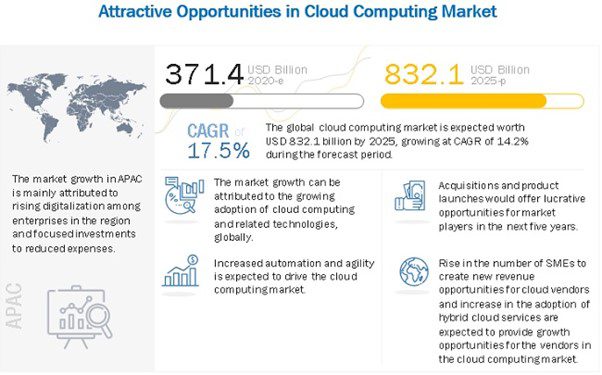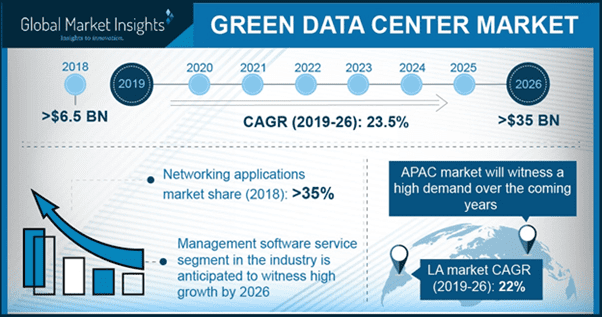As of January 2021, there were 4.66 billion active internet users (1) around the world – 59.5 per cent of the global population. This means, more than half of the world’s population is online.
From buying products and services online to enrolling in online education courses, the internet has become an indispensable part of our lives. It is a boon for eCommerce sellers and other businesses who can contact their customers easily anytime and promote their products seamlessly by creating an online presence. One of the many reasons why there are over 1.5 billion websites (2) on the world wide web today.
The growing importance of online presence drives the demand for web hosting services. This is a golden opportunity for web hosting providers. But to make full use of this opportunity, it is important to stay on top of web hosting trends.
To help you with that, we came up with the top 7 web hosting trends in 2021 that you must bookmark now.
Top 7 web hosting trends in 2021
1. The future is multi-cloud
To build a business that is resilient and agile – you need to rely on technologies that evolve with you. Many organizations learnt this the hard way when the COVID19 pandemic hit.
Cloud computing is one of the most popular digital technologies in the market right now. And why not, it offers everything that a modern business requires to stay on the top of its game. From low-upfront investment and instant scalability to premium data security and flexibility of resources, cloud hosting has been a technological breakthrough of this decade.
This is the reason why the demand for cloud hosting does not seem to decline anytime soon.

Source: Marketsandmarkets
A multi-cloud architecture defines a computing model that utilizes two or more different types of public, private, or hybrid clouds. With distributed cloud solutions of multiple providers, businesses can achieve greater efficiencies and economies of scale.
More than half (55%) of organizations currently use multiple public clouds, with 21% saying they use three or more.(3)
It also helps them in picking the best-of-breed services of different cloud providers. For example, they can pick a cloud provider based on their premium security offering, while another provider can guarantee high upload speed for their customer-facing application.
Though setting up a multi-cloud arrangement is not easy, with the right expertise, businesses can achieve complete agility and workload mobility. As a hosting provider, you must keep this trend in mind while preparing your service offering.
2. Green hosting is gradually becoming a necessity
Green hosting defines web hosting that either uses renewable energy resources or offsets the energy consumed by servers using green initiatives.
Now, you might think, how buying hosting can affect the environment?
Let’s dig deeper. When a customer buys any hosting – they are securing a spot in the world of the internet where their data (website) will reside. This data is stored in servers. These servers run non-stop round the year and need to be kept in cooled environments – leading to the generation of a significant amount of carbon footprint. This makes them harmful to the environment.
The effect can be understood more deeply when you realize that there are billions of websites and data centers in the world right now.

Source: Global Market Insights
Green web-hosting providers actively try to use eco-friendly initiatives – like using renewable energy to run data centers. These companies are REC (Renewable Energy Certificates) or VERs (Carbon Offset Certificate) certified.
In the coming years, with more talks on protecting the environment and reducing carbon footprint, green hosting can become the first choice of customers.
3. Security will take center stage
Internet security will take the center stage in the web hosting services industry this year and for the years to come. The reason being the pandemic complicating the security landscape – introducing new threats and vulnerabilities. COVID-19 related scams are posing serious threats to personal as well as commercial data. Thus, there are rising concerns over data security and growing cyberattacks.
In a report, Gartner predicted the worldwide spending on cybersecurity to reach $133.7 billion in 2022.
As people become more aware of cybersecurity and its importance, web hosting providers will need to make security an inherent part of their service offerings.
Not only this, but you will also need to follow the best security protocols within your organization. Even a petty cyber-security incident can ruin your reputation. Some best cybersecurity practices can include embracing two-factor authentication, SSL certification, unified protection, and compliance checks for CMS (Content Management System).
Many websites hosting providers are also offering domain privacy services. A domain privacy service ensures that the customer’s domain info on WHOIS (a public domain directory) is kept anonymous and private.
Another important security offering is HTTPS. Today, offering HTTPS more than a nice-have feature has become a must-have. HTTPS can not only improve any website’s security profile but also help it rank higher on search engines like Google.
Suggested Reading: Top 10 cybersecurity trends in 2021
4. Decrease in traditional data centers
In one of its blog posts, Gartner predicted that by 2025, 80% of enterprises will shut down their traditional data centers.

Source: Gartner
Spending on traditional data centers is slowly declining due to the increased dependence on cloud-based servers and collocated data centers.
Today, not every organization is building their own data centers. Rather, they pick data center services from large providers to save infrastructure set-up costs. While ‘cost’ may seem to be the primary reason why people are shifting to collocated data center space, but network performance is an equally or even more pertinent reason. By moving to the cloud and colo, enterprises can:
- Improve application and infrastructure scalability
- Improve data center security & resiliency
- Reduce capital expenditure
As traditional data center demand decline, hybrid and multi-cloud architecture will become more significant.
5. Value addition is key to differentiation
When it comes to the service industry, extra is always desirable. This holds for the web hosting providers as well. It is not what you offer that differentiates you, it is what you offer in extra that attracts the customers the most.
This is more relevant in today’s age where the customer is looking for value. Gone are the days when hosting was just about the server space and file storage. Today, tons of different offerings can make you stand out from the competition. These include offerings like SSL, web design, e-mail marketing, automation tool, control panel, website optimization, SEO and more.
Giving your customers value-added extras establishes you as the one-stop destination or the first port of call whenever the customer requires a new service or product.
6. Growth of managed web hosting
Managed web hosting is one of the most interesting web hosting trends to watch out for this year.
Managed hosting is one where the service provider manages the necessary website operations like backups, system updates, help desk support at their own end. This means that the customer who is buying the service does not need to worry about the management and administration.
Unmanaged hosting services come with a lot of hidden costs – like the cost of hiring system admins, database admins, security teams, etc.
A managed hosting can cover these additional costs for you and your customers. Plus, you and your customers can focus on core business goals and competencies.
Managed hosting providers can also take care of the website security through advanced server monitoring, proactive detection of vulnerabilities and other irregularities.
7. Rise in DIY website builders
Do-it-yourself (DIY) website builders are the biggest competition for web hosting providers.
These DIY website builders offer a simple and intuitive drag-and-drop feature to customers, allowing them to build a website from scratch. This largely attracts the customers who like to have control over their website – in terms of how it looks but does not necessarily have the technical knowledge to do so.
Website builder tools allow them to build beautiful websites without requiring any coding or designing experience.
The global website builder software market was valued at USD 6,525 million in 2018 and is expected to generate around USD 13,605 million by the end of 2027. (4)
The growing demand for website builder software is an alarming trend for web hosting providers. Many web hosting providers have started offering DIY page and website builder as add-ons. Nevertheless, true web hosting benefits go beyond a simple website and design. Speed, security, functionality, and scalability are some other factors that web hosting providers can offer.
We hope you liked our list of top web hosting trends. Did we miss anything? Do share your thoughts through the comments section below.
Sources:
1 https://www.statista.com/statistics/617136/digital-population-worldwide/
2 https://www.internetlivestats.com/total-number-of-websites/
3 https://resources.idg.com/download/2020-cloud-computing-executive-summary-rl
4 https://www.zionmarketresearch.com/news/website-builder-software-market









It is very easy, that you can host your website on any web hosting platform. But which hosting fits our business. It’s a bit difficult to find out. But I got to know something with the help of this article.